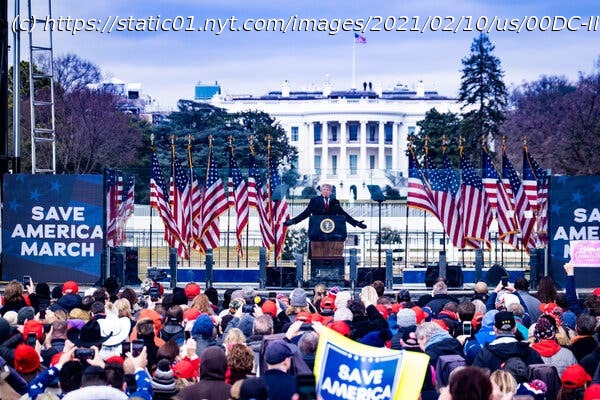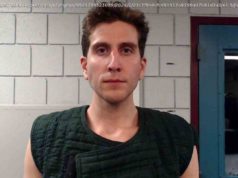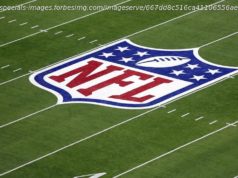The Supreme Court has placed strict First Amendment limits on incitement charges in court. But many legal scholars say they do not apply in impeachment trials.
When Donald J. Trump was running for president in 2016, he pointed to some protesters at one of his rallies and told the crowd to “get ’em out of here.” The protesters, who said they were then viciously assaulted, sued him for inciting a riot. Mr. Trump won the suit. A federal appeals court, relying on a case concerning the Ku Klux Klan, ruled that his exhortation was protected by the First Amendment. And now his lawyers are making the same argument at his impeachment trial, where he stands accused of inciting an insurrection. But Democrats say that argument misses two key points. An impeachment trial, they contend, is concerned with abuses of official power, meaning that statements that may be legally defensible when uttered by a private individual can nonetheless be grounds for impeachment. Equally important, they say that Mr. Trump’s statements on Jan.6 should not be considered in isolation but as the final effort of a calculated, monthslong campaign to violate his oath of office in an effort to retain power. Representative Jamie Raskin, Democrat of Maryland and the lead impeachment manager, said on Wednesday that Mr. Trump’s words that day met any conceivable standard for incitement. “Donald Trump surrendered his role as commander in chief and became the inciter in chief of a dangerous insurrection,” Mr. Raskin said, adding that Mr. Trump’s actions were “the greatest betrayal of the presidential oath in the history of the United States.” Stacey E. Plaskett, a Democratic delegate from the Virgin Islands, said Mr. Trump’s statements were the culmination of a pattern of conduct that deliberately encouraged lawlessness. “Donald Trump over many months cultivated violence, praised it,” she said. “And then when he saw the violence his supporters were capable of, he channeled it to his big, wild historic event.” Mr. Trump’s call to the crowd in 2016 had none of that baggage, but Judge David J. Hale of the Federal District Court in Louisville, Ky., allowed a lawsuit against him to proceed, writing that incitement is a capacious term. Quoting Black’s Law Dictionary, he wrote that it was defined as ‘the act or an instance of provoking, urging on or stirring up,’ or, in criminal law, ‘the act of persuading another person to commit a crime.’” Judge Hale also wrote that the protesters could satisfy the demanding First Amendment limits the Supreme Court had placed on incitement suits.






